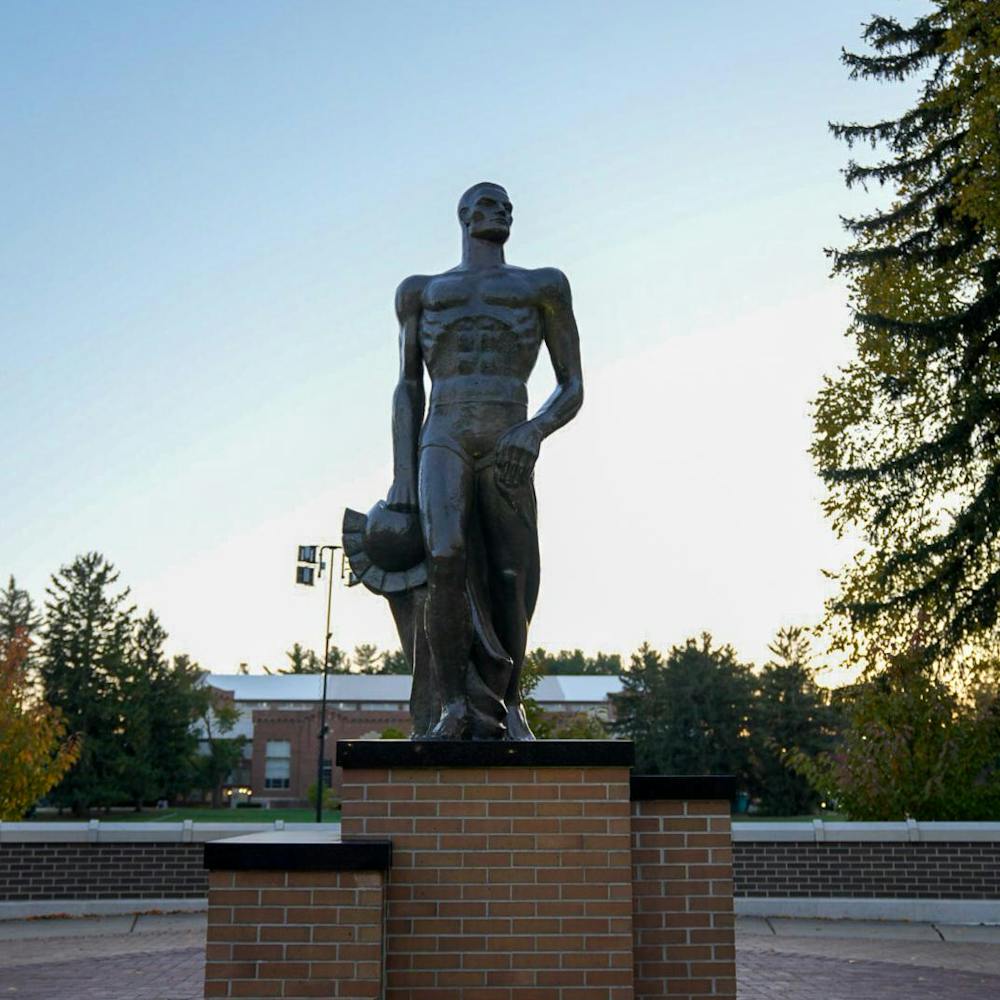East Lansing’s skyline might not be getting a little higher any time soon.
City Center II, a $116.4 million project slated for the Grand River Avenue and Abbot Road area, is being developed by Strathmore Development Co. The company is developing Broadway Village — a similar project — in Ann Arbor, where construction has yet to begin.
That project has faced a few financial and construction issues, which doesn’t concern East Lansing officials. They say City Center II is likely to move forward with few glitches.
The setbacks
Broadway Village, a $172 million project, had a ground breaking ceremony in January, but no construction has occurred since then, said Alexis DiLeo, a city planner for Ann Arbor.
“Everything hinges on Strathmore’s ability to get financing from outside sources,” Ann Arbor City Councilmember Sabra Briere said. “Developers have to convince banks and other financing institutions that their plan and financial footing is sound enough that they can guarantee a profit, and they’ve not been able to do that.”
Scott Chappelle, president of Strathmore, said in an e-mail that he is not concerned about developing Broadway Village.
“We have not had difficulty in obtaining financing,” he said. “The difficulty comes from getting the financing to work with the public components.”
Ann Arbor Councilmember Stephen Kunselman said although it would be nice if the project could move forward, he has seen a number of projects under various developers fall through in Ann Arbor.
“I think any development is on shaky financial footing — that’s just the nature of where we are in our economy,” he said. “I wouldn’t think one developer over another would be able to do better.”
However, the Broadway Village project has faced several obstacles, including a check Strathmore wrote for taxes that bounced in January.
“In these economic times, we expect that developers are going to be trying hard to make their ends meet,” said Roger Fraser, Ann Arbor’s city administrator. “The fact that a check bounces — it’s not common, but it’s not totally unusual.”
There also have been two construction liens filed against the property, totaling slightly more than $1.3 million.
One of the liens was mutually agreed upon, and the other will be paid after studies showing hazardous materials in the area are on file, Chappelle said.
“There’s no reason to think they couldn’t do a really fine job somewhere else … but they certainly have not done a fine job in Ann Arbor,” Briere said.
East Lansing City Councilmember Nathan Triplett said these issues were brought before the council’s attention, but most of the council had a chance to speak with Chappelle.
“With a project of this size, there’s always a chance there will be complications, but the more planning we do up front, the smoother the process will be,” Triplett said.
Jim van Ravensway, director of planning and community development for East Lansing, said he is fully aware of what is going on in Ann Arbor, but he is not at all concerned.
“Things are progressing as we anticipated, but we don’t have a firm date on when this project will actually begin construction,” he said.
Financing the project
Support student media!
Please consider donating to The State News and help fund the future of journalism.
The Ann Arbor project is partially funded by tax increment financing, which means the tax revenue the project generates during the next 30 years will pay for part of the project.
That process could begin in the next five years. It was slated to start before December, but Strathmore is asking for an extension.
“At this point, (the revenue) would be very small — it (would be) putting the project at risk to be paid back within the remaining 25 years, and five additional years assures that they have more time to pay it back,” said Patricia Denig, director of the Planning Services Division for Washtenaw County, which is the county where Ann Arbor resides.
Although Ann Arbor originally intended on issuing bonds for Broadway Village, it will be entirely financed without the city’s money. Eventually, a parking deck will be city owned, DiLeo said.
A different approach
The East Lansing City Council will vote on a plan to open a dialogue with the public on using city bonds as one method for financing the City Center II project at its meeting tonight. It is scheduled for 7:30 p.m. in the Union’s Gold rooms A and B.
If approved, a notice about the potential use of bonds would appear in the newspaper, said Mary Haskell, finance director for East Lansing. The bond issue will be put on the ballot if 10 percent of registered voters file a signature within 45 days. But, if no one files or a petition is invalid, the decision will go before the City Council.
The money that would be generated by this bond is estimated to be between $25 million and $30 million, Triplett said.
“The parking structure is going to be city owned, as well as the public space. We’re not issuing bonds for the developer, we’re issuing bonds for city-owned infrastructure,” Haskell said.
The rest of the project will be covered by Strathmore.Under the project’s financing, the bonds should be paid back by the tax dollars it produces.
One concern with this type of financing is that if the project does not generate enough taxes, there is a substantial risk that bonds couldn’t be paid back, said Karen Sidney, a CPA in Ann Arbor, who has concerns with the project there.
However, this isn’t expected to be a problem for East Lansing, van Ravensway said.
“Bonding will occur simultaneously with the project — we would not be bonding if (construction) didn’t occur,” he said. “We anticipate for that, we prepare for that.”
Discussion
Share and discuss “City Center II developer overcoming troubles” on social media.






